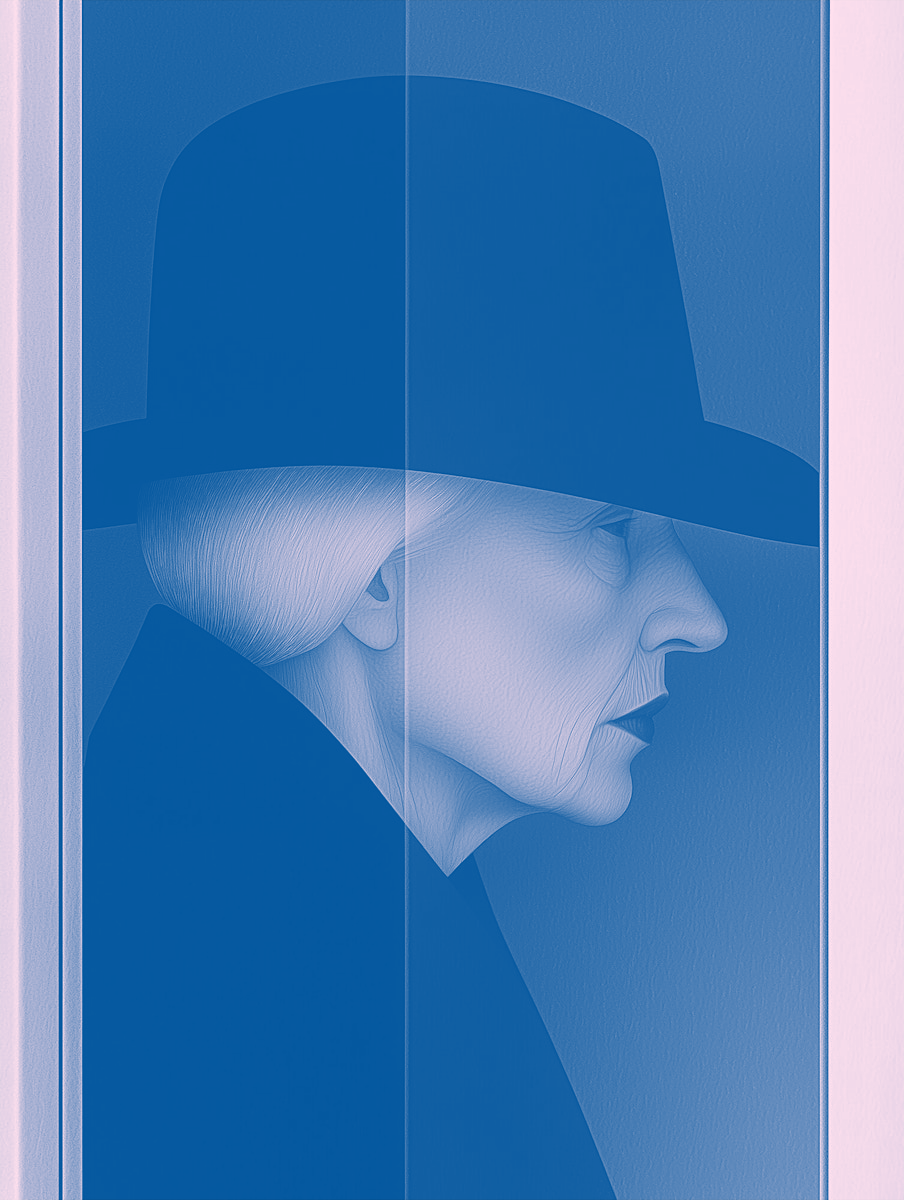How you've made me
The doctor informed me that she had only a few days left before she passed away, due to the irreversible damage from the stroke. He urged me to make arrangements for her dignified death and to take as long as I needed to mourn and spend time with her.

The doctor informed me that she had only a few days left before she passed away, due to the irreversible damage from the stroke. He urged me to make arrangements for her dignified death and to take as long as I needed to mourn and spend time with her.
Once, she had been a much-talked-about flight attendant, enjoying the abundant company of accomplished first-class travellers and forming lavish acquaintances among the guests on chartered flights and private jet owners. For most of her life, she was on the go and absent from mine. However, despite her popularity, at the end of her life no one was there but me, her only daughter.
Not one of her famed lovers was there, nor was my father. If I had known who he was, I would have written to him. Yet all I knew was that my mother met him in Moscow in the 1980s. She discovered the unwanted pregnancy when it was too late to have an abortion. They agreed between them that he would take care of me financially for my whole life. In exchange, their involvement, his identity, and my existence were never to be discussed. Sometimes I fantasised that my father was a secret agent and that his concealed identity was for our safety, rather than facing the crude thought that I was perhaps the product of a whirlwind extramarital affair.
The only mark of him in my childhood was a collection of poems by Alexander Pushkin. This book was a gift from him and was hence dearly treasured by my mother. I had not comprehended how precious it was to her until that memorable summer day when I was seven years old. As she prepared to depart for her next flight, I tore the first poem out of that book and folded it into a paper aeroplane. “Bon Voyage, Mummy!” I cheered, hugged her with a sweet, innocent smile, and put the paper aeroplane into the pocket of her uniform. As she unfolded the paper aeroplane, she realised what I had done to the treasured memory of him and burst into tears. She did not reprimand me that day, but the sight of her sobbing was one I would never forget.
As I grew up, I saw lovers come and go from her life. She was once this energetic, much-envied lady who left her daughter with the nanny for days to pursue the next excitement. Yet, in contrast, in front of me she now lay in a coma, bedridden and with only days left to live. “Despite the coma, she can still hear you,” the doctor advised. “Other family members in your situation have found it consoling to pour their hearts out to their loved one before their final moments.”
After the doctor left the room, the veil of quietness overwhelmed me as I held her hand, sitting by the bed. “Where should I begin, Mother?” I broke the silence, asking myself.
“I have a life of emotions to share with you, yet you were never there. Every week I wished you never had to catch the next flight, leaving me for days. Time and again, I felt so alone because you were never home. I wish I could hate you, but you are my mother.” I started to speak my thoughts out loud to untangle my bewilderment. This was my last chance.
“You wanted me to be like a princess because you wished you were one. For the short periods that you were at home, you always scolded me for my poor manners, but you were never there to teach me to be the high-class girl you aspired to be. You required me to be elegant. You hated my clumsiness and messiness. You brought me to events full of people of a class you did not belong to. You pressured me to get married early because you never did. Have you ever seen me as your daughter, or just your failure-in-waiting that required fixing? Have you ever seen me, or did you just see your expectations of me?” My voice became fainter with every word. “Who am I but a mere reflection of what you wanted me to become?”
“I longed for every time you returned,” I continued my monologue. “You only seemed happy when you were proud of me, so I only provided you with pleasant news when you were back. How I only ever informed you about my excellent grades. How I did not speak about my loneliness or the fact I was bullied, since that would bother you. I wanted you to be happy. This became a habit. I never told you of my failures, only my successes, because I believed that when you were proud of me, you would love me. I somehow thought I needed to earn your love, that I was only worthy of love when I had good news for you the next time you returned.”
“Growing up with your aloofness, I saw you as a reason to keep striving for more and to keep living in the future. My yearning for you has cursed me so much that I have never been able to live in the present. My happiness lies in future moments when you will return. I have sought to earn your love with more achievements. Yet, as soon as I achieve something, the little joy in me diminishes as I quickly move on to the next one. I feel this is a never-ending road to earning my worth because of you. Will you love me when I am better or achieve more?” I muttered.
“For my whole life, I have yearned for love. Perhaps that is because I was never loved by you. Perhaps you loved yourself more. Perhaps you loved me as a product of your making. Did you accept me for who I was, Mother? I kept looking to men for the love I never had from you. I settled and married a man who loves me more than I love him, just to prove to myself that I could be loved by someone.” I asked her a question, which I still did not have an answer to and probably never would. “I know my existence was a mistake, but do you love me, Mother?”
“The agony is that, after all these years, I still want to be comforted by you even when I loathe how you treated me. I wished you could have said that you loved me; you never did. Yet, after all, I could never grow to hate you. I really tried.” I started to sob and said, “I love you, Mother.”
My tears blended with my unintelligible voice. “Here I am in front of you, not to confront you but to face a life that I have never lived for myself. Now I am stuck. I am stuck in this life of your making, but it is collapsing, Mother, now that you are gone.”
As I wept, there was a knock on the door. It was the estate lawyer who took care of my mother’s will. As he noticed my teary eyes, he profusely apologised. “Pardon me... I have just finished a meeting with the doctor and thought I should visit your mother. It seems that now is not the right time, though. I will leave this bouquet of flowers here.”
“Thank you,” I replied.
“Your mother also said I should give you this envelope separately from the probate proceedings. The next time we meet might be procedural, so it is perhaps better that you receive this now,” he said, as he handed me the sealed envelope from my mother.
After some more pleasantries, he left. I was not ready to read what was inside that envelope. I put it aside and sat down next to my mother in silence. I did not keep track of the time, and before I knew it, it was already 7 pm and dark outside. The visiting hours of the hospital were about to end, so I gathered the courage to open it.
Inside the envelope was the paper plane I had once folded thirty years ago, which she had somehow kept all these years. I unfolded it, reading the poem I had torn from Alexander Pushkin’s book.
I loved you; even now I may confess,
Some embers of my love their fire retain;
But do not let it cause you more distress,
I do not want to sadden you again.
Hopeless and tongue-tied, yet I loved you dearly
With pangs the jealous and the timid know;
So tenderly I loved you, so sincerely,
I pray God grant another love you so.
Below the poem was her handwriting.
“I’m sorry. I love you.”
After reading that, more tears streamed down my face as I held her hand and whispered into her ear.
“Bon Voyage, Mummy.”
